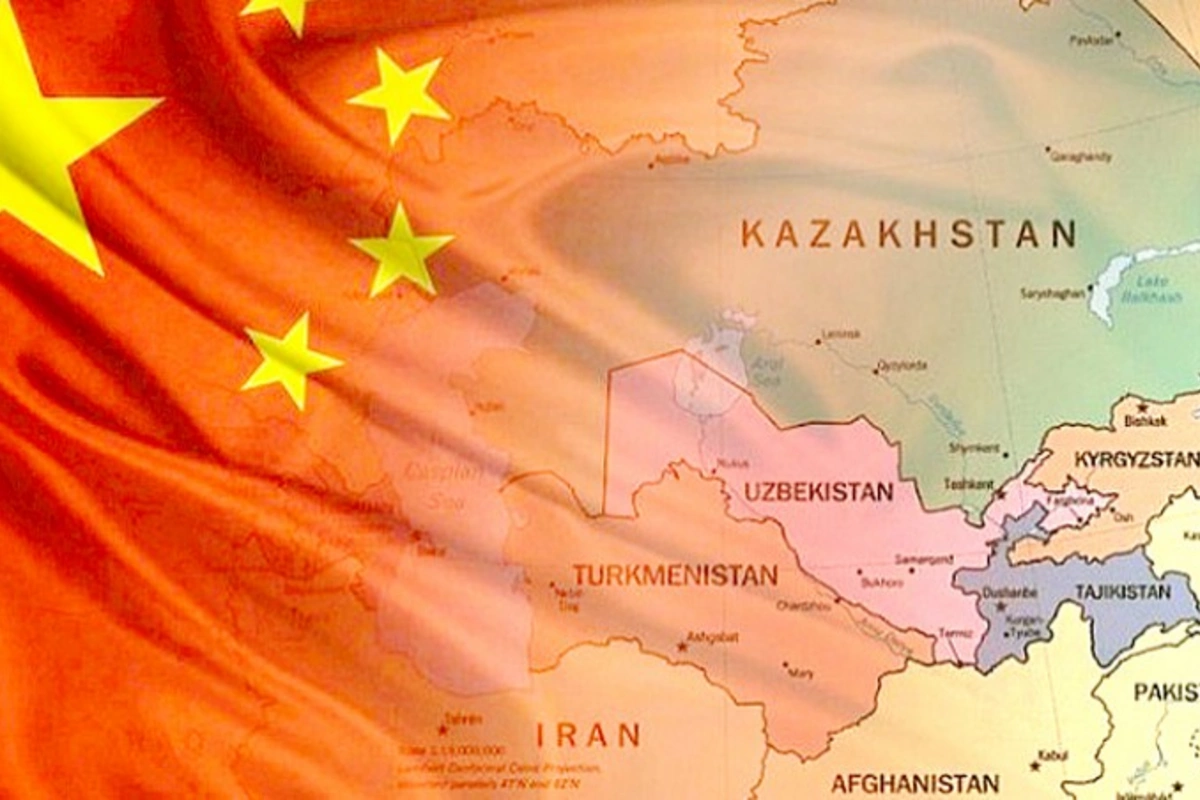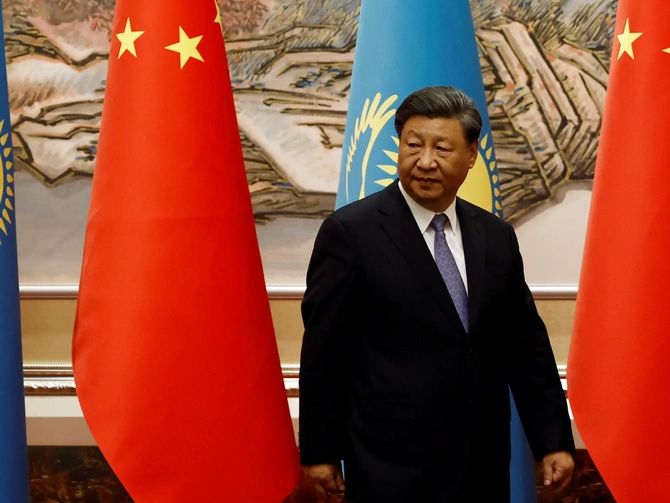
In an interview with Caspian Post, Yunis Sharifli, an expert at the Topchubashov Center, explores the key aspects of China’s policies in Central Asia and the South Caucasus, the strategic importance of Kazakhstan, Uzbekistan, and Azerbaijan, and the prospects for bilateral relations between Baku and Beijing.
Photo: New Eastern Outlook
In recent years, China has significantly expanded its influence in Central Asia and the South Caucasus, transforming from an economic partner into a strategic player. Through the successful development of the Belt and Road Initiative, investments in green energy and industrial projects, and cooperation in infrastructure development, Beijing’s growing role in these regions has become increasingly evident. However, questions remain: how does China balance its interests with Russia’s traditional sphere of influence, and how are regional countries leveraging this strategic shift to achieve their own goals?
In an interview with The Caspian Post, Yunis Sharifli, an expert at the Topchubashov Center, explores the key aspects of China’s policies in Central Asia and the South Caucasus, the strategic importance of Kazakhstan, Uzbekistan, and Azerbaijan, and the prospects for bilateral relations between Baku and Beijing. The expert also shares his perspective on the likelihood of China and Taiwan uniting—a persistent flashpoint in global geopolitics.
- What role does China play in Central Asia and the South Caucasus? And what role do Central Asia and the South Caucasus play for China?
- Traditionally, China has functioned as an economic partner in Central Asia, focusing on infrastructure and energy investments, while Russia has maintained its role as a security provider. Beijing's involvement historically centered around extracting raw materials, particularly oil and gas, and developing infrastructure like roads and pipelines to facilitate the transport of these resources to Chinese markets. However, since 2015, China has expanded its investment focus beyond raw material extraction to include the industrial sector. This shift aims to support the industrialization of Central Asian countries, adding value to regional products and increasing processing capacity. Moreover, since 2018, China has prioritized green energy projects—such as wind and solar—responding to growing regional demands for investment in renewable sectors. Through these adjustments, China has aligned more closely with the developmental goals of Central Asian nations, transitioning to a diversified role that includes green and industrial projects.
Traditionally, China’s presence in the South Caucasus has been limited. However, in recent years, both Azerbaijan and Georgia have developed strategic partnerships with China. Additionally, China has become increasingly active in renewable energy projects with a particular focus on Azerbaijan. China plays a dual role in these projects as both an input supplier and a project developer for green energy initiatives. For example, Azerbaijan’s Ministry of Energy recently signed a Memorandum of Understanding with China Gezhouba Group Overseas Investment to advance renewable energy development, showcasing China’s growing involvement in this sector. Furthermore, regional countries have been importing more electric vehicles from China, strengthening China’s influence in the region. Azerbaijan’s recent agreement with BYD to produce electric buses further highlights Beijing’s expanding presence in the South Caucasus electric vehicle market. Currently, renewable energy and electric vehicles appear to be two critical sectors offering significant cooperation opportunities between China and the South Caucasus and Central Asia.

Photo: Florence Lo/Pool via Reuters
- Which countries in both regions are of greatest interest to China?
- Kazakhstan, Uzbekistan, and Azerbaijan are critical countries for China’s strategic interests. Kazakhstan is particularly important due to its strategic location, facilitating land-based trade between China and the EU, and its vast reserves of energy and rare-earth materials. Uzbekistan, with its population of 36 million, offers China a sizable consumer market and a developing investment climate. Azerbaijan, situated in the key location of the Middle Corridor, holds strategic value with its growing interest in renewable energy projects, aligning well with China’s current overseas investment priorities. Beyond their individual significance, the cooperation among these three countries in green energy and electricity exports to the EU opens new opportunities for China to engage in long-term projects. Their collaborative efforts in developing transportation infrastructure also reduce the need for Chinese investment while providing modern logistical routes that diversify China’s trade channels and strengthen its connectivity with the EU. Altogether, these three countries play a vital role in China’s strategic calculations across Eurasia.
- In your opinion, does China's activity in Central Asia and the South Caucasus irritate Russia, which views these regions as its undisputed sphere of influence?
- China’s growing activity in Central Asia and the South Caucasus may not necessarily irritate Russia, despite the traditional view that China’s expanding influence could threaten Russia’s primacy in these regions. It appears there is an unspoken understanding between the two countries, where each has a distinct role: China acts as the “banker” in Central Asia and increasingly in the South Caucasus, while Russia takes on the role of “sheriff,” maintaining its security provider position in both regions. Moreover, China’s engagement with local countries serves to limit Western influence, aligning with Russia’s broader policy objectives. By refraining from establishing a hard security presence—such as military bases or posts—China signals respect for Russia’s position in the region. This arrangement not only reduces potential friction between China and Russia but also indirectly supports Moscow’s efforts to minimize Western economic influence. In this context, China’s growing role complements Russia’s interests rather than posing a threat, allowing Moscow to maintain its influence while benefitting from China’s economic contributions to the region.
- How are Azerbaijan's bilateral relations with China developing? In which areas can you already note fruitful and effective cooperation?
- Azerbaijan and China have significantly strengthened their bilateral relations in recent years, culminating in the establishment of a strategic partnership in July 2024. This partnership has fostered fruitful cooperation across several key areas:
• Bilateral trade has seen substantial growth, with trade turnover reaching $3.1 billion in 2023. Both nations are committed to further enhancing trade and investment ties, focusing on sustainable and dynamic development.
• China has become increasingly involved in Azerbaijan's renewable energy projects. In June 2023, Azerbaijan's Ministry of Energy signed a Memorandum of Understanding with China Gezhouba Group Overseas Investment to develop renewable energy projects with a capacity of 2 GW.
• Azerbaijan plays a pivotal role in the Middle Corridor, a key component of China's Belt and Road Initiative. Both countries are collaborating to enhance this corridor, aiming to develop more efficient trade routes between China and Europe.
• The two nations are exploring potential projects to develop green energy opportunities. China's Vice Premier, Ding Xuexiang, emphasized the importance of international efforts to advance the global 'green' agenda during his visit to Azerbaijan for the COP29 Leaders' Climate Action Summit.
These developments underscore a deepening and multifaceted partnership between Azerbaijan and China, with ongoing and effective cooperation in trade, energy, infrastructure, and green technology sectors.
- How do you assess the likelihood of Taiwan and China uniting?
- The likelihood of Taiwan and China uniting in the near term remains uncertain, as Beijing continues to prioritize peaceful integration through economic engagement and soft power efforts. China has sought to economically intertwine Taiwan with the mainland, fostering interdependence and extending its influence through trade, investment, and shared economic initiatives. However, the expected return of a Trump administration could heighten U.S.-China tensions, particularly over Taiwan. This could potentially prompt China to strengthen its military preparedness as a deterrent against perceived moves toward Taiwanese independence or greater U.S. support for Taiwan. Over the next five years, China is likely to focus on key objectives: achieving greater self-sufficiency in strategic sectors, accelerating military modernization, and continuing its economic outreach to Taiwan. Despite these efforts at peaceful integration, China maintains the option of a military response, keeping this as a "stick" to discourage moves toward Taiwanese independence. Thus, the next few years will likely see an increase in strategic uncertainty around Taiwan, as this area remains a significant point of contention between China and the United States. This ongoing friction will continue to shape U.S.-China relations, with Taiwan as a central point of potential escalation or stalemate.
Share on social media